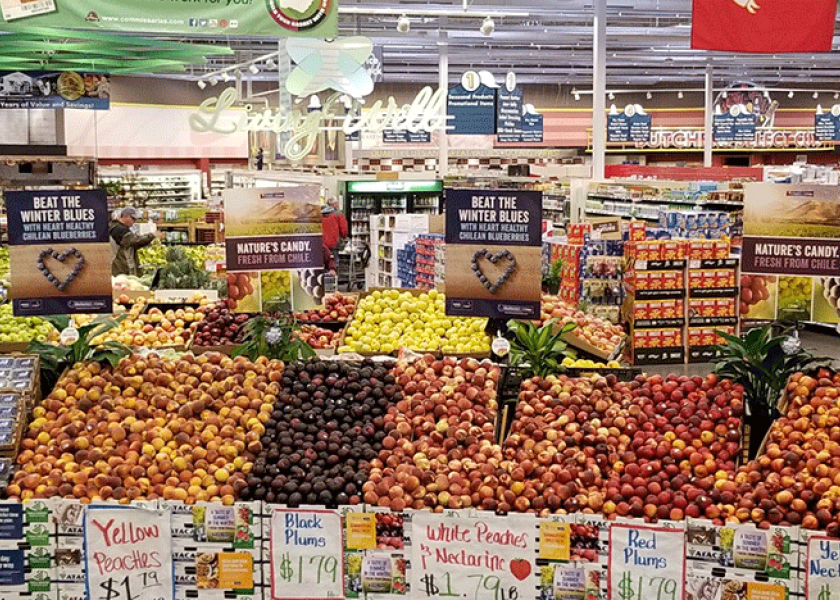Stone fruit volume to hold steady

See updated coverage: Chilean fruit exporters are assessing the effects of a Nov. 12 storm in many fruit growing regions of the country.
Chile’s stone fruit exports to the U.S. won’t have any big surprises for the 2018-19 season, most observers think.
Peaches, plums and nectarine imports volumes are expected to be steady and normal, said Eric Coty, executive director of South American imports for The Oppenheimer Group, Vancouver, Canada.
Shipments will be limited in December and ramping up in January, continuing with volume into March.
Craig Padover, account and category manager for Jac Vandenberg Inc., Yonkers, N.Y., said the stone fruit season was running one to two weeks later than average in mid-November. Volumes for peaches, plums, nectarine should be comparable to last year, he said.
Padover said there are proprietary new varieties of stone fruit that ship well and have good flavor. He said those varieties include regaline nectarines (white-flesh or yellow-flesh) and lemon plums.
In calendar year 2017, the U.S. Department of Agriculture reported Chile shipped 66.2 million pounds of peaches, 96.5 million pounds of plums and 97.7 million pounds of nectarines to the U.S.
Those numbers were off compared with calendar year 2016, when Chile sent 80.9 million pounds of peaches, 124.3 million pounds of plums and 119.1 million pounds of nectarines to the U.S.
Acreage of stone fruit has declined in Chile in recent years, with peach and nectarine acreage falling from about 47,400 acres in 2013 to 41,600 acres in 2016.
Peach and nectarine production in Chile declined from 369,000 metric tons in 2014 to 337,000 metric tons in 2016, according to the United National Food and Agriculture Organization.
Plum acreage has dropped from 46,000 acres in 2013, to about 43,000 acres in 2016, according to the FAO. Plum production dipped from 312,000 metric tons in 2013 to 295,000 metric tons in 2016.
Apple outlook
Chile’s apple shipments to the U.S., mainly arriving from March through July, may show slightly reduced volume compared with the a year ago.
The U.S. Department of Agriculture’s Foreign Agricultural Service projects that Chile will export about 720,000 metric tons of apples in 2018-19 season, down 4% from 750,000 metric tons exported in 2017-18.
The U.S. is the top market for Chilean apples, according to the USDA, followed closely by the Netherlands, Colombia and India.
Chile’s total apple planted area decreased from 92,775 acres in 2013 to about 85,000 acres in 2017, according to the USDA.
The decline, according to the USDA, is because apple exports have not been as profitable as other crops such as cherries, walnuts and hazelnuts.
However, the USDA said apple growers are renewing old orchards with modern varieties such as Jazz, Envy, Brookfield, Rosy Glow or Ambrosia.
The USDA said Chilean pear production in 2018-19 totaled 250,000 metric tons after a 3.8% decrease in planted area. Chile’s pear exports in 2018-19 are projected to decrease to 127,000 metric tons, a 2.3% decrease due to lower than expected production.
Northeast editor Amy Sowder contributed to this article.
Related articles:
China’s demand could attract more Chilean grapes







